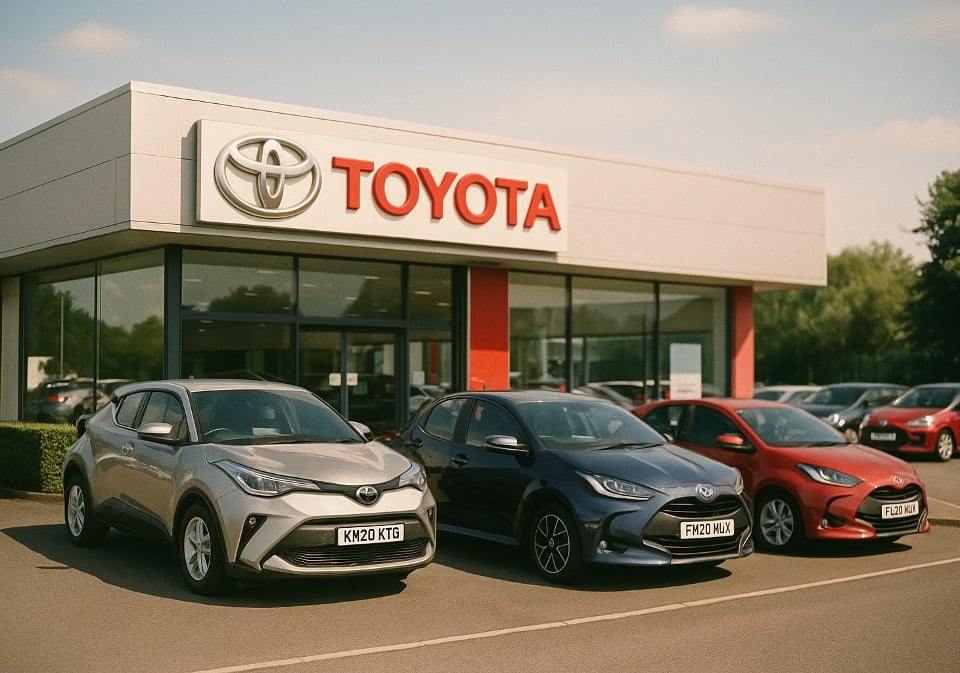People fall in love with cars, not dealerships. Yet the only touchpoint they usually have with the brand they adore is the local garage or dealer where they buy and service it. That dealership is often an independent franchise, with motivations that don’t always align neatly with the manufacturer’s. As far back as 2016, J.D. Power's Mark Lendrich highlighted a significant gap between car companies and their dealerships, stressing the importance of personal relationships and a focus on existing customers. Nearly a decade on, that disconnect still lingers – and closing it is more vital than ever if automotive brands are to thrive.
A Persistent Gap in Service Quality
The fundamentals of good service remain powerful. J.D. Power once found that 61% of UK customers had to wait to be greeted when arriving at a dealership, even though a simple “hello” could lift satisfaction scores by almost 50 points on a 1,000-point scale. That difference was roughly the gap between first place and near the bottom of the rankings. In other words, the basics really do matter.
Yet progress has been slow. The UK Customer Satisfaction Index (UKCSI) still places the automotive sector mid-table, 6th out of 13 industries, behind retail, tourism and banking. Globally, automotive brands and dealers fare no better: in customer experience rankings they languish around 9th and 11th place. In plain terms, the industry is underperforming in service, despite the fact that customers are willing to pay more for excellent treatment. In fact, almost one in three UK consumers (31%) say they prioritise excellent service even at a premium. Fail to deliver it, and they walk away.
And when they do walk, they don’t come back. Two-fifths of dissatisfied UK customers (41%) will actively avoid that business in future. The Driver Power Shopper Survey showed that three out of four unmet expectations in car buying relate to dealership staff. It’s clear: a sparkling showroom and a brilliant product cannot make up for indifference, pressure, or poor communication from the people on the ground.
Closing the Dealership Disconnect
So how can car makers ensure their dealerships live the brand values and meet modern customer expectations? Some back-to-basics lessons still carry the most weight:
- Keep your promises. Reliability is king. As Darren Young of the Customer Service Network explains: “If you say you will do something and then don’t, you are setting the relationship back a level or two.” A missed call-back or a forgotten update may sound minor, but they add up fast in the customer’s mind. Doing what you said you would, every time, builds trust.
- Train people in people skills. Technical expertise is important, but it isn’t enough. As Nigel Cook of mystery-shopping firm Douglas Stafford says: “Training in handling customers comes second to technical knowledge. Really, it should focus on relationships.” Friendly, empathetic communication can make the difference between loyalty and defection.
- Personalise the experience. Not every customer wants the same thing. Some appreciate a detailed walkthrough of the work carried out on their car; others just want to drop the keys and go. As JD Power’s Mark Lendrich put it: “Dealerships aren’t set up to individualise service. It’s a one-size-fits-all model.” Those days are over. Dealers who flex their approach – offering text updates, video health checks or quick express lanes – win far more goodwill.
- See through the customer’s eyes. Caroline Murie of Walton Murie consultancy puts it simply: “Businesses can operate in their own little bubble. They need to take the customer’s point of view.” From parking, to waiting areas, to booking a service, ask: would I be satisfied if this were me? Small irritations often make the biggest dents in satisfaction.
Local marketing can reinforce this. Dealers embedded in their communities – visible on local social media, responding to reviews, active in neighbourhood events – become trusted ambassadors for the brand. That’s how you match a slick national campaign with a local experience that feels genuine.
Signs of Improvement
It’s not all doom and gloom. There are brands proving that outstanding customer experience is achievable.
- Suzuki
has built a reputation as one of the UK’s most reliable performers in customer satisfaction. In the UKCSI, Suzuki consistently ranks amongst the top automotive brands, often outscoring household names in other sectors too. Customers highlight Suzuki’s dealers for trust, empathy, and reliability – all qualities that translate directly into loyalty. In a sector where inconsistency is the norm, Suzuki’s steady performance is proof that focus and culture matter. - Toyota
is another recent success story. In 2025, Toyota leapt to the top tier of the UKCSI automotive rankings with a score of 83.6, placing it amongst the UK’s very best organisations across all industries. Toyota attributes this to campaigns centred on aftercare, helpfulness, and caring for customers’ needs. Its dealers now aim to interact with customers in the way they prefer – whether that’s online, by phone, or face to face – reducing hassle and building emotional connection.
BMW UK, Audi UK Škoda UK Mercedes-Benz in the UK and Lexus UK also appear in the top 50. These examples show that when manufacturers and dealers pull together, customer satisfaction can soar.
New Players, New Pressures
Competition is intensifying, not least from new Chinese brands shaking up the UK and European markets. Names like BYD UK , MG Motor UK Ltd, OMODA UK , JAECOO UK , GWM UK , XPENG UK, Changan.UK and NIO UK are rapidly gaining ground with electric vehicles that combine high specification with sharp pricing.
BYD quadrupled its UK sales year-on-year by mid-2025 and is racing to expand its dealer network to 120 outlets by year end. CHERY UK’s Omoda and Jaecoo brands sold nearly 20,000 units in their first half year in Britain. MG has cemented itself as one of the UK’s top 12 selling brands, powered by affordable EVs and hybrid models.
These brands know they must work harder to earn trust. Surveys show that 40% of UK buyers would now consider a Chinese brand, with interest highest (57%) amongst 17–34 year-olds. But industry experts caution that success depends not just on value but on reassuring customers with safety, data security, and – critically – customer service. As Auto Trader’s Ian Plummer puts it: “To succeed, Chinese brands will need to reassure consumers through strong safety ratings, expert reviews, and customer service that matches traditional manufacturers.”
Notably, many Chinese entrants are embracing the traditional franchise dealer model. They recognise that local dealers know their communities and can offer the personal service new entrants need. That puts even greater pressure on established European brands: if long-standing dealers don’t raise their game, nimble newcomers may quickly win loyalty.
Conclusion: Becoming Local Heroes
So, can car dealers meet customer expectations in 2025? Absolutely – but only if they treat customer service as a strategic imperative, not a nice-to-have. Customers will forgive a lot if they feel valued, respected, and understood. They will forgive nothing if they feel ignored, misled, or taken for granted.
As Jo Causon of the Institute of Customer Service warns: “Customers will not hesitate to switch to organisations that deliver on their expectations.” For dealers, that means every greeting, every promise, every follow-up call, every handshake matters.
The best brands – from Suzuki’s consistent high scores to Toyota’s surge in 2025 – prove it can be done. Their dealerships act as local heroes for their customers: trusted, reliable, and people-first. The rest of the sector must follow their lead. Because in the end, while customers may fall in love with cars, they stay loyal to the people who look after them.














